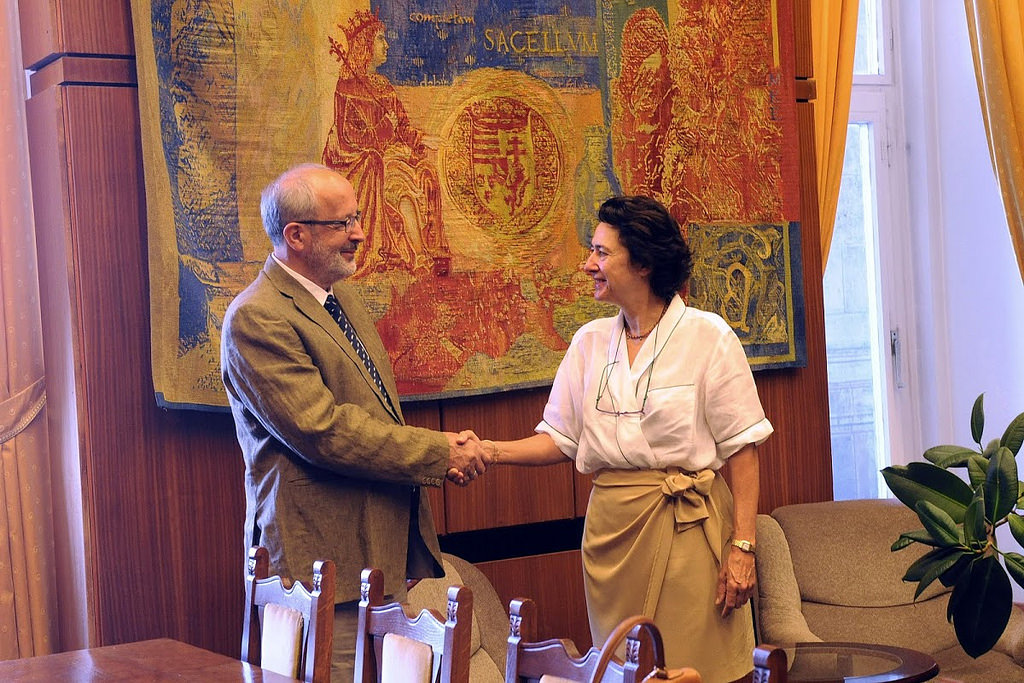Asset management is under pressure. In addition to challenging market conditions, growing competition from low-cost index products is also undermining the margins of fund providers. Last but not least, end users make demands: they want to invest independently. FinTech cooperation offers customers added value.
Although the global financial industry has been digitizing its processes for a long time, the development in traditional asset management has so far been low
Unlike payments (Apple Pay), credit cards (Revolut) or mortgages (Hypomat), the impact of technological change on asset management has remained modest. Within the company as well as towards the customer.
According to a study by PwC from October 2018, the asset managers’ margins fell by nearly nine percent from 2012 to 2017 and should fall by another 20 percent by 2025. Increased competition, rising regulatory costs and the growth of passive investment products (ETFs and index funds) with their low fees are calling for niche providers in particular to activate the lack of economies of scale.
By simplifying internal processes, digitization can make a difference. So the goal is clear: achieving a high degree of industrialization and automation along the entire value chain of an asset manager.
Reach the end investor directly
Digitalization should not only affect internal processes, but also customers. The reason why this hardly ever happens is the lack of personal contact in counseling and care, which is important for building trust. Indeed, fund companies sell their products through intermediaries such as banks, insurance companies or independent financial intermediaries.
Whether the personal exchange but will remain so important, is questionable. While one used to meet with bank advisers during business hours in the store, the younger generation prefers to do their own financial affairs by laptop or smartphone. Only those who manage asset management easily and efficiently will have access to the next generation. Wealth management must, therefore, redefine its path to the ultimate investor in order to be able to reach sufficiently large target groups again.
BlackRock – the world’s largest asset manager with interests in digital asset managers Future Advisor in the US and Scalable Capital in Germany – is an example of such a direct seller. The US financial services provider Vanguard also sells its investment instruments in the US and the UK via its own digital channel directly to the end investors.
This strategy has advantages as well as dangers. Thus, the intermediaries could consider direct sales as a competitor – and discontinue product distribution for these providers. This is the main reason why the majority of fund companies are still reluctant to seek contact with private customers, “to go retail”, as they say in English.
FinTech cooperations
This situation is the reason why new forms of cooperation are being sought, for example in the form of cooperation with independent digital asset managers, the so-called Robo-Advisors. The value of this distribution channel lies not only in the absence of donations from banks or asset managers, but also in the fact that no in-house products are offered. Only this independence allows independent advice.
For most Robo-Advisors in German-speaking countries, investors choose a model portfolio based on their individual return/risk profile. However, investors currently only have access to a limited number of sample deposits. Often these consist only of ETFs or index funds. The customer buys thus the market average, but not a portfolio that offers him long-term added value.
A different approach is taken by the provider Descartes Finance, which offers various model models or investment styles of different asset managers. The platform is also open at the custodians – there are currently interfaces to five Swiss banks. The classic robo-advisors usually have only one custodian in the background.
The Descartes platform covers the entire value chain: services include customer account opening and risk profiling, servicing the model portfolios of various asset managers, digital portfolio execution, ongoing monitoring, order generation, and risk management. Descartes does not focus on product distribution, but rather on the solution, such as the practical implementation of model portfolios or strategic asset allocation.
Focus on core competence
It is this open, independent and comprehensive approach that convinced the financial boutique OLZ, a partner-led asset manager in Bern, to enter into a partnership with Descartes. Even investment solutions that were previously reserved for professional investors such as pension funds, foundations or family offices can be easily portrayed and efficiently made available for smaller investment amounts.
The collaboration between the digital asset manager and the established asset manager shows that a fund provider can tap into new markets without compromising existing channels in the institutional sector. Although the retail sector would be a possible field of activity for OLZ, it would not be efficient to process it on its own. This is true for most asset managers, big or small.
Thanks to FinTech cooperation, fund providers can use their resources in a more intensive advisory process for larger private and institutional clients. Both parties benefit from this because they can fully exploit their respective core competencies and use them profitably. Fund providers are finding an efficient and cost-effective distribution channel for end-investors in cooperation with digital asset managers, and the Robo-Advisor benefits from proven sample portfolios, increasing the credibility of the digital platform. A true win-win situation that benefits investors, asset managers and the digital platform alike.

